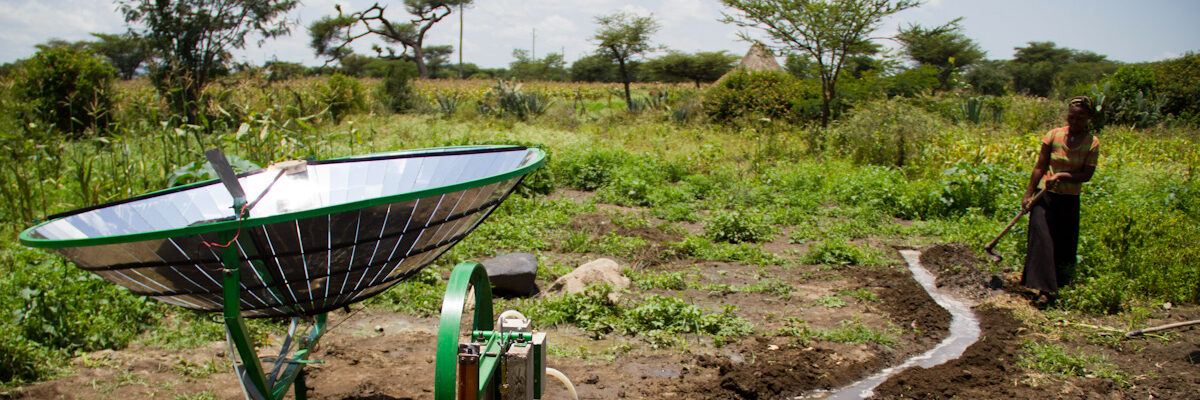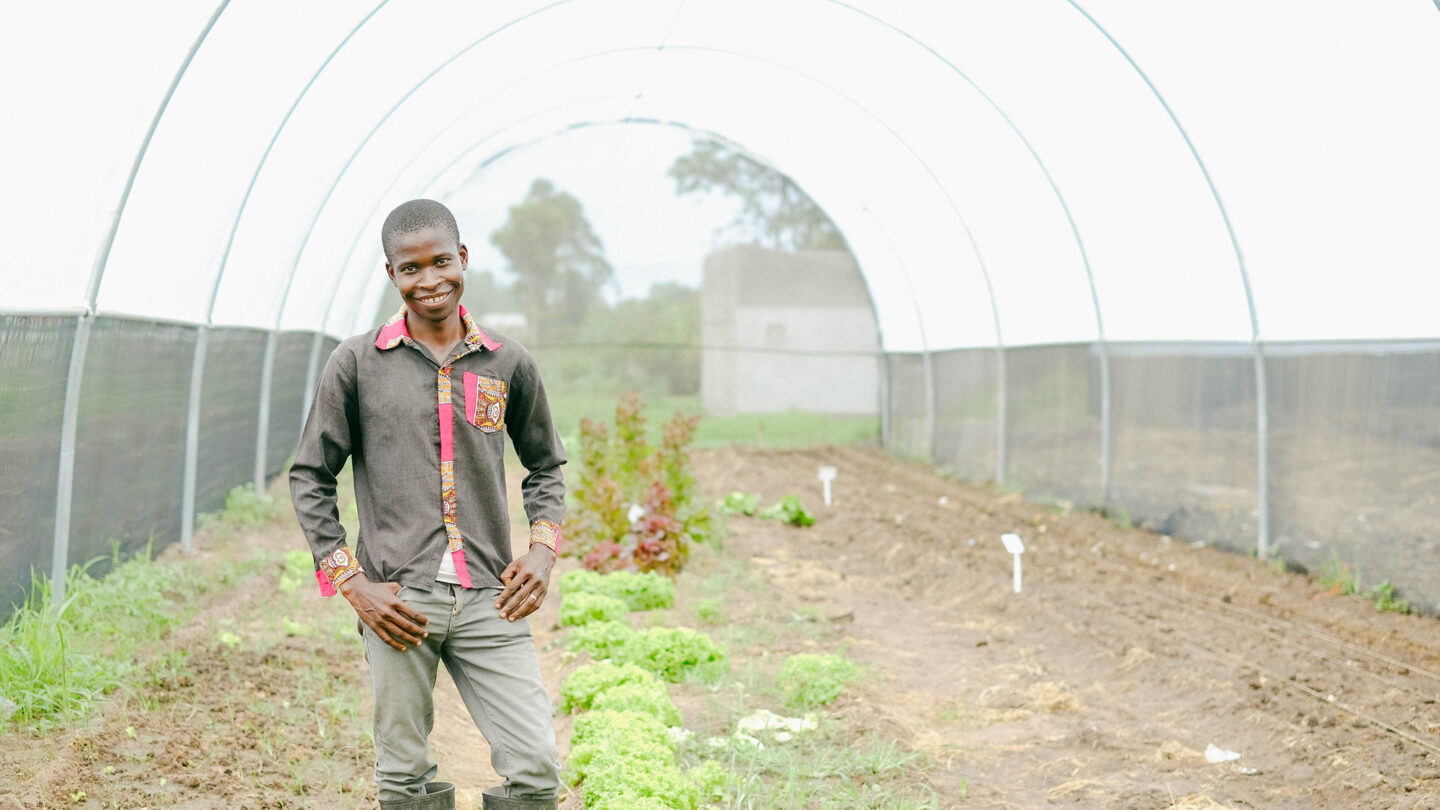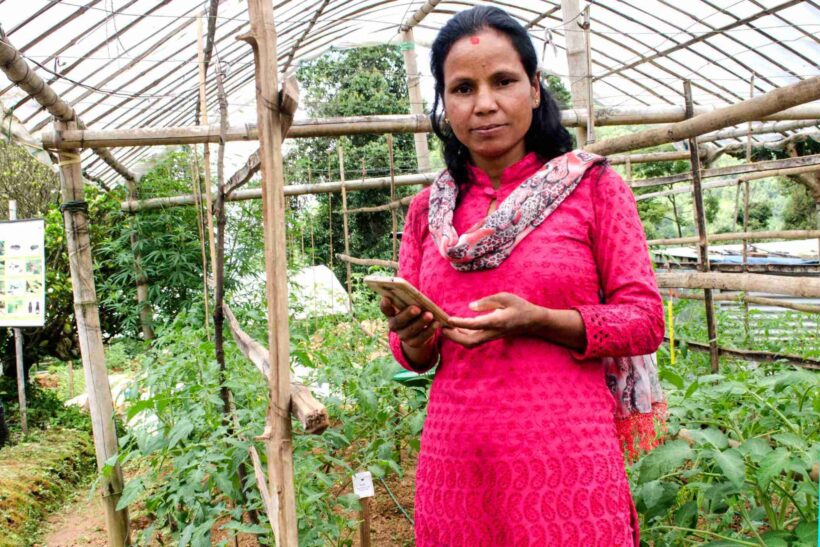
Climate-Smart Products
Technology that boosts profits and is good for the environment
Solar water pumps. Micro-irrigation lines. Rainwater harvesting. Greenhouse tunnels. Vegetable dehydrators. For more than 40 years, iDE has helped develop and promote technologies that assist people generate higher incomes. As the climate changes, these resource-smart technologies have become increasingly important.

Greenhouses (including large scale ones like Nalito’s as well as smaller, mini-tunnels) help farmers increase their production by enabling five harvests per year (versus three) for high-value crops like lettuce, cabbage, and tomatoes. Photo by Alice Lee, 2018
For example, farmers who live in drought-stricken areas have benefited from micro-irrigation or drip technology which delivers water directly to root systems. Because drip irrigation works as an enclosed system it limits evaporation and reduces water usage by 30-40 percent compared to, say, furrow irrigation, which uses trenches or “furrows” dug between crop rows to distribute water. Drip irrigation can also improve soil health, reduce erosion and salinity, and increase productivity.
In Nepal we reached more than 20,000 climate-vulnerable households, promoting technology, innovations, and practices such as integrated pest management, essential oil distillation and greenhouse vegetable cultivation. The program enhanced resilience, helped develop value chains and increased incomes.
But while it is important to make climate-smart technology available, other key activities are required to make these products and programs successful: such as awareness raising on availability and cost-to-benefit potential; training on proper use like putting water filters in micro-irrigation lines; availability of maintenance and repair and knowhow when it comes to selling additional crops harvested outside of main seasons.

Rupa Thapa, Nepal
Connect with iDE’s expert in Climate-Smart Technology
Michael Mangano
Director, Agriculture and Market Systems
Michael ManganoMichael has utilized tools and methods that help farmers understand climate impacts. He welcomes your questions about how access to technology increases climate resilience.
Read More

